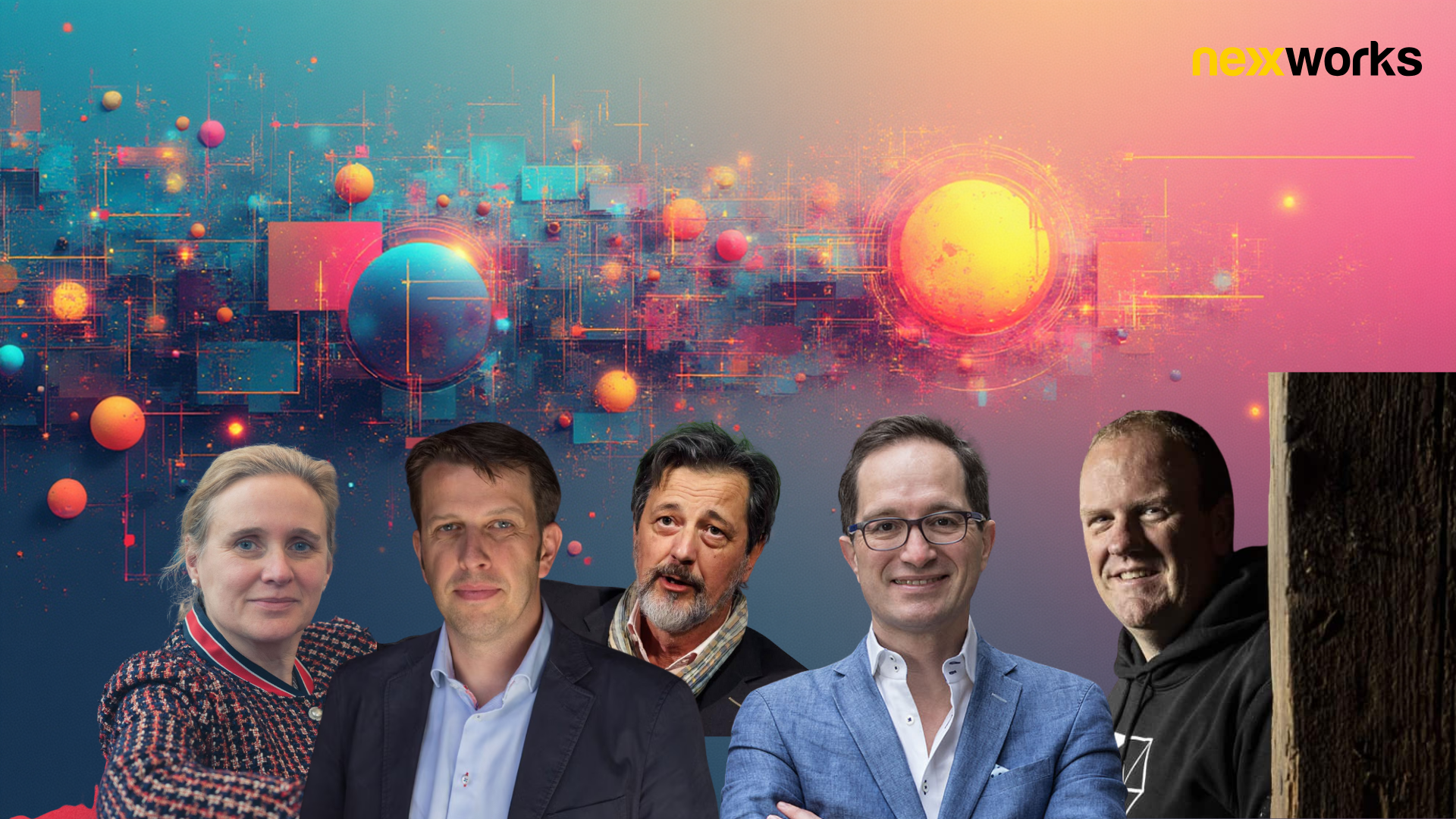“It’s Chess on Steroids”: Peter Hinssen on AI, Power, and the End of Normal
Insights from the nexxworks Leadership Masterclass with Peter Hinssen and Frederik Anseel
.jpg)
According to tech entrepreneur and thinker Peter Hinssen, we’ve crossed a point of no return. The world won’t go back to normal—because normal doesn’t exist anymore.
“The pace of change is so extreme that nothing new will ever feel normal again.”
Having once coined “The New Normal”, he now calls our era “Never Normal.” The rise of generative AI—adopted by nearly all students within just two years—is unlike anything he’s seen before.
AI is just getting started
While writing his latest book, he used ChatGPT and Claude as creative sparring partners. They didn’t write for him, but they helped shape ideas.
“No thesis is written without AI anymore. I’ve never seen a technology adopted this fast.”
But the real shift is still coming. As AI-native Gen Z enters the workforce, older generations will have to adapt—or be outpaced. Traditional tools like annual budgets and fixed project plans can’t keep up.

Silicon Valley under pressure
Even the tech giants are struggling. Apple hasn’t had a hit since the iPad and is faltering on AI. It may lose $20 billion annually from antitrust rulings and is facing supply chain issues in China.
Google’s dominance is fading too, with younger users turning to tools like Perplexity and ChatGPT. “They don’t Google anymore.”
Meanwhile, AI alliances are shifting fast—OpenAI distancing from Microsoft, Meta investing heavily in Scale AI, and Sam Altman teaming up with Jony Ive in what could be a major new competitor.
“You can’t think in years anymore. It’s chess on steroids.”
The militarization of tech
Silicon Valley’s tone has shifted. It now openly embraces nationalism, militarization, and hardline politics. Companies like Palantir and Anduril are leading the charge in building AI-driven military systems—autonomous weapons, bombs, and drones.
“The link between tech and defense was always there. Now it’s out in the open—and moving faster than ever.”

Europe’s challenge
Europe once led the digital wave—with players like Nokia, Ericsson, and even Netlog. Now, it risks irrelevance. Much of its top talent has moved to the U.S. and isn’t returning.
Still, stricter U.S. immigration policies could help Europe turn the tide and attract global talent once again.
Who controls the future?
Peter is hopeful about progress, but he warns of growing instability. In China, the government reasserted control over tech giants like Tencent and Alibaba. In the West, such checks are disappearing.
Companies like Amazon and Walmart are now exploring their own digital currencies—raising questions about the future of financial systems and democratic oversight.
AI is forcing us to rethink where power lies—and how we keep it in check.

.png)
.svg)






